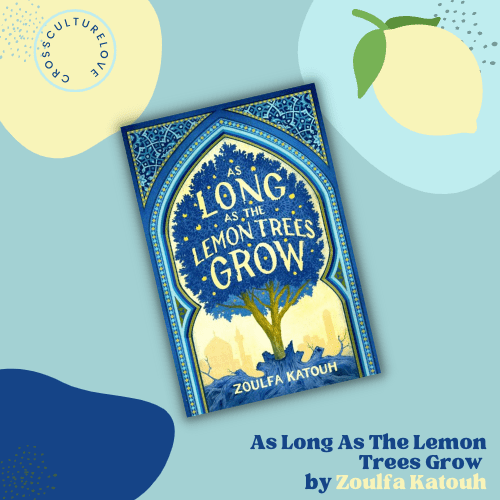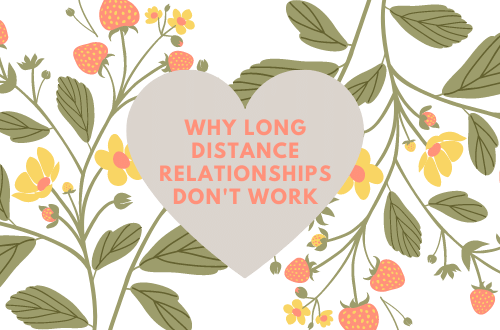
As Long As the Lemon Trees Grow by Zoulfa Katouh – A review
As Long As the Lemon Trees Grow by Zoulfa Katouh was recommended to me from a Facebook group where I posted about my Around the World in Books series. My goal is to read at least one book from every country in the world, and this masterpiece was book 21.
If you haven’t read As Long As the Lemon Trees Grow, I highly suggest you do.
Click here to buy the book (Affiliate link) or click here to see it on Goodreads.
What is As Long As the Lemon Trees Grow about?
As Long As the Lemon Trees Grow is about an 18-year-old pharmacy student, Salama who is tasked with being her pregnant sister-in-law’s caregiver after the start of the Syrian civil war. As one of the few people in her neighborhood with medical training, she is promoted to the role of doctor and sees first-hand the atrocities of regular bombings and chemical attacks on innocent people.
Salama is struggling with her decision to stay in Syria and fight for her people or leave the country she loves and save her family, all while managing her rapidly deteriorating mental health in the face of unbelievable atrocities.
Is there romance in As Long As the Lemon Trees Grow?
There is a romance in the book, but it is not necessarily a “romance book,” nor does the romance seem to be the primary focus for the majority of As Long As the Lemon Trees Grow.
Initial thoughts on As Long As the Lemon Trees Grow
So, I’m not much of a fiction reader. Fictional stories just don’t pique my interest, particularly young adult fiction. I’ve always preferred real stories to made-up ones. However, as part of the Around the World in Books series, I’m trying to expand my horizons geographically and in the types of literature I read. I’ll be honest, I gravitated to this book in part because the cover is so beautiful, and I’m a sucker for a good book cover.
I really, really liked this book. It was sometimes hard to read, very emotional, and a vivid tale of modern warfare and its effects on innocent people. I greatly liked the main character, including the male protagonist and the supporting characters. I enjoyed seeing the author’s love for Syria through her characters’ eyes. I imagine Syria was a beautiful place filled with such fantastic culture before the war, and it will be again one day. It’s clear that Syrians have a strong sense of cultural identity and a love for their people.
Zoulfa Katouh is a fantastic author, and I was a bit surprised to read that this was her debut novel. I was amazed at her ability to show and not just tell the characters’ personalities. I feel like so many fiction authors will say things like, “Sally was such a good friend and a strong person, and she was so quirky and cool,” instead of…showing Sally doing those things.
But Katouh did not do that. She illustrated her characters’ personalities in very practical and poignant ways.
As Long as the Lemon Trees Grow as YA fiction?
One of my only criticisms of As Long As the Lemon Trees Grow is that it’s classified as a young-adult book. This, to me… is a tough sell as a YA book, and I would give an As Long As the Lemon Trees Grow age rating at 16+ at least. It has a lot of trigger warnings: death, war, graphic child murder, sexual assault, extremely dense PTSD, and psychological conversations. Maybe kids are just tougher these days than I was as a young adult, and I think it is essential for youth to be aware of what’s going on in the world, but it is pretty heavy for a YA book, in my opinion.
Besides that, 10/10. No notes.
The section with spoilers
If you haven’t read the book, do not read this section.
I felt like the use of Layla and Khawf as manifestations of Salama’s PTSD and trauma responses was exceptionally interesting and compelling. It was a poignant way of showing the inner dialogue of someone experiencing the horrors of war and the survivors’ guilt. The Layla reveal was a gut punch that I was not expecting, and it spoke very highly to Zoulfa Katouh’s writing abilities that she pulled it off so well. In hindsight, I should have seen clues that she was no longer alive, but I truly had no idea. Very, very well written.
Another thing that the author did well was demonstrate the intense survivor’s guilt that victims of war experience. Even surviving feels like an act of betrayal when so many do not, and Katouh does a great job of portraying this internal struggle.
There was an interesting flashback that I felt I would like to have heard more about: it was a scene where Salama and her friends were sitting at a cafe studying, eating, and joking around. A few impoverished people came by asking for food or money, and they ignored them. I felt like this was interesting, juxtaposed with the new reality of Salama and her friends after the start of the Syrian crisis. I keep thinking about this part and am curious why the author included it.
The As Long As the Lemon Trees Grow ending was intense, and obviously, I won’t spoil it here, but the book had me guessing until the last sentence. It’s a fairly long book, and I finished it in a matter of days, which is rare for me.
Conclusion
As Long as the Lemon Trees Grow is a beautiful but difficult book. I’m glad I was introduced to it as part of my reading challenge, and I look forward to reading more from the author. I’ll definitely be recommending it, and I’m happy it was recommended to me.
What were your thoughts on As Long as the Lemon Trees Grow? Please share what you think!
Check out the author’s website.
See the Around the World in Books project here.
And if you’d like, send me a message or comment with a book you’d like to me to read and review during the series.





